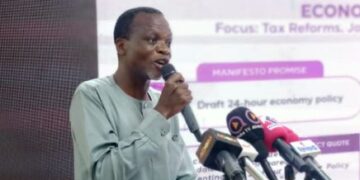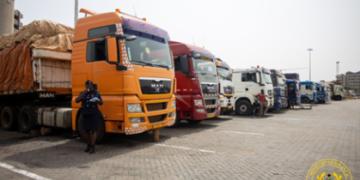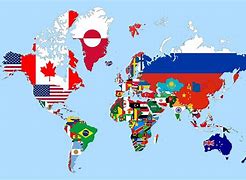With their high living standards, well-funded public services, and booming industries, wealthy countries frequently give the appearance of prosperity.
With their high living standards, well-funded public services, and booming industries, wealthy countries frequently give the appearance of prosperity. But in certain instances, extreme national riches stands in sharp contrast to pervasive poverty among the populace as a whole. Extreme income disparity, political unpredictability, poor economic management, and an inability to allocate wealth fairly are some of the causes of this dilemma.
Even while some nations make a lot of money from their plentiful natural resources, including minerals, oil, or gas, the advantages are usually still concentrated in the hands of a wealthy few. Economic advancement is further hampered by political unrest, ineffective government, and corruption, which denies the mass of people access to the riches their nation generates.
Below are some of the world’s wealthiest nations where significant portions of the population still live in poverty:
- Qatar
Qatar ranks among the wealthiest nations globally based on GDP per capita, primarily due to its vast natural gas reserves. Despite its affluence, a large segment of the population, particularly migrant workers, experiences severe economic hardship. Many endure exploitative labour conditions, low wages, and restricted access to basic services, highlighting the stark gap between the ruling elite and the underprivileged workforce.
- United Arab Emirates (UAE)
With their high living standards, well-funded public services, and booming industries, wealthy countries frequently give the appearance of prosperity.
With their high living standards, well-funded public services, and booming industries, wealthy countries frequently give the appearance of prosperity. But in certain instances, extreme national riches stands in sharp contrast to pervasive poverty among the populace as a whole. Extreme income disparity, political unpredictability, poor economic management, and an inability to allocate wealth fairly are some of the causes of this dilemma.
Even while some nations make a lot of money from their plentiful natural resources, including minerals, oil, or gas, the advantages are usually still concentrated in the hands of a wealthy few. Economic advancement is further hampered by political unrest, ineffective government, and corruption, which denies the mass of people access to the riches their nation generates.
- Saudi Arabia
Some Saudi nationals enjoy a luxurious lifestyle thanks to the country’s enormous oil reserves, but there is still widespread unemployment, economic inequality, and young unemployment. Even if the royal family and corporate elites amass enormous wealth, a sizable portion of the populace faces financial instability and a lack of employment possibilities.
- Angola
Angola is an oil-rich African country that possesses abundant natural resources, such as minerals and diamonds. The majority of Angolans nevertheless live in abject poverty in spite of this wealth because of political unrest, poor infrastructure, and corruption. While the general populace suffers from high unemployment rates and a dearth of essential services, a small elite has profited from the nation’s abundant resources.
ICYMT: Haaland Faces Fitness Race
- Venezuela
Venezuela has one of the biggest oil reserves in the world, which potentially makes it a wealthy country. However, living circumstances have drastically declined as a result of years of political unrest, hyperinflation, and poor economic management. Most people in the nation are currently struggling to make ends meet due to severe poverty, rising inflation, and food shortages.
- Nigeria
Nigeria, the biggest economy in Africa, has enormous oil reserves, but millions of its people still live in extreme poverty. Economic mismanagement, endemic corruption, and bad governance have hindered the nation’s ability to use its wealth to raise living standards. The stark income disparity in Nigeria is highlighted by the fact that many Nigerians lack access to basic infrastructure, healthcare, and education.
Although a nation’s economic might and natural resources might support its success, they do not always result in improved living standards for all. To guarantee that prosperity reaches all citizens, not just a wealthy select few, sustainable economic policies, open government, and fair wealth distribution are crucial. These countries will continue to exhibit the dichotomy of excessive riches and pervasive poverty in the absence of fundamental improvements.




























